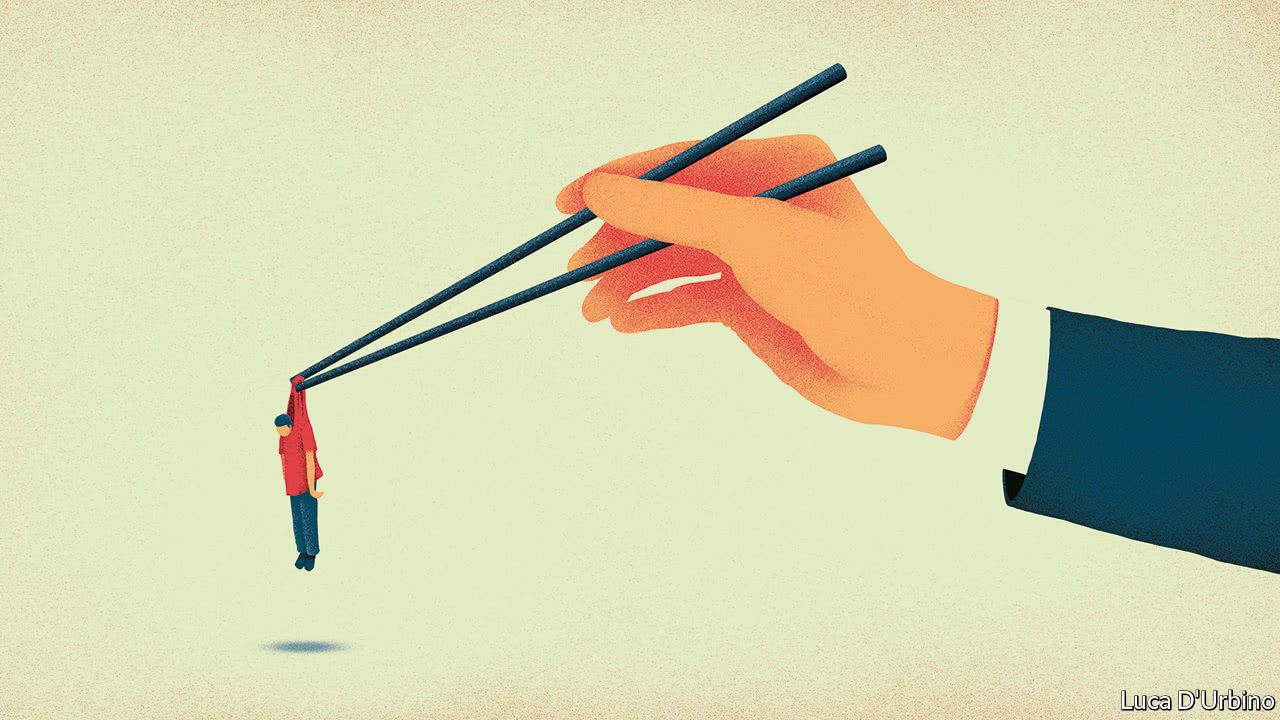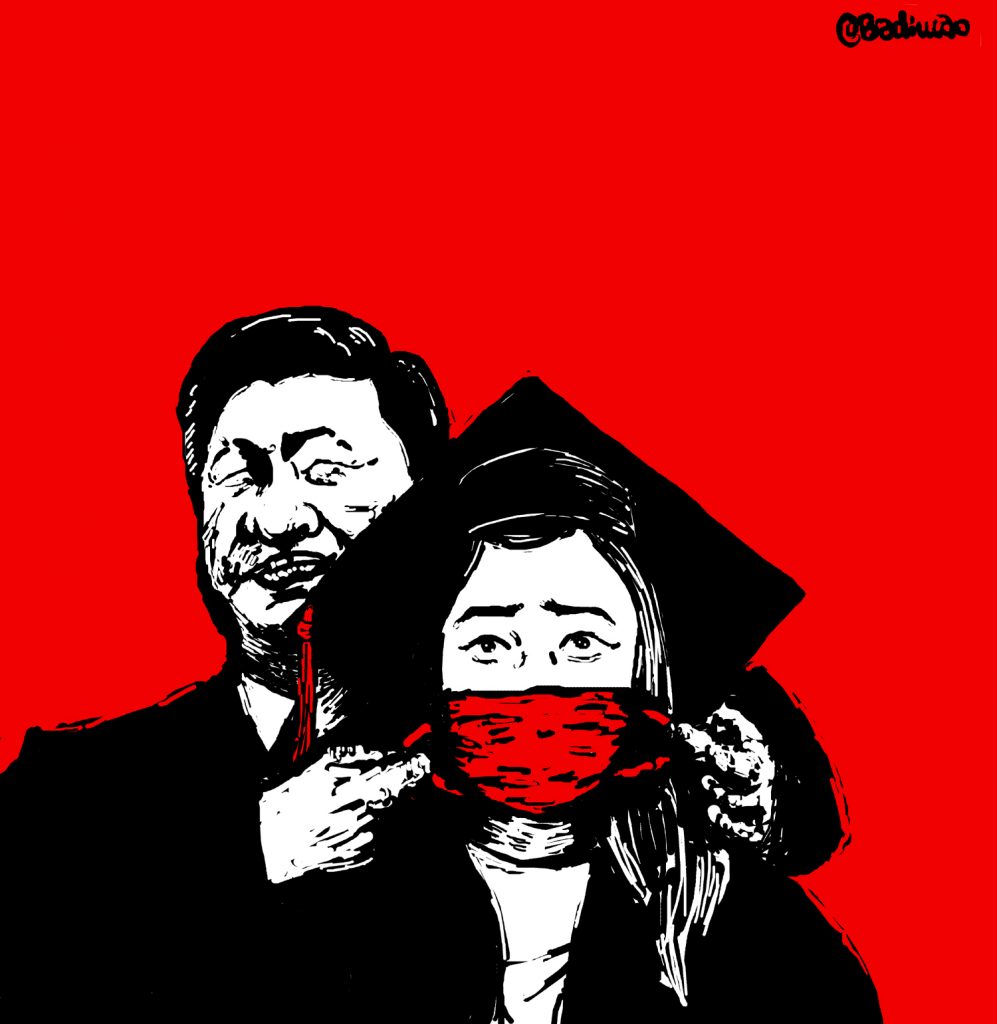By Wang Dan

Protesters on an armored vehicle just outside of Tiananmen Square in Beijing on June 4, 1989.
I learned that I was China’s most wanted criminal while having my hair cut aboard a crowded, decrepit steamboat on the Yangtze River.
The P.A. system suddenly blared that the Beijing Public Security Bureau had ordered the arrest of 21 students who were charged with instigating “counterrevolutionary riots” in Tiananmen Square.
My name topped the list.
It was June of 1989, nine days after government troops and armored personnel carriers rolled into central Beijing and brutally crushed the seven-week-long student-led pro-democracy demonstrations.
The announcement on the boat rattled me.
As one of the chief organizers of the protests, I was running away from the authorities in the capital.
I had not expected Beijing’s terror to reach this far.
It all started on the evening of April 17, 1989, when students at Beijing University gathered to mourn the death of Hu Yaobang, a former Communist Party chief who had been ousted for advocating Western-style reforms.
Some classmates prodded me to give a speech because I had organized a “Democracy Salon” during my freshman year.
As I began talking about problems facing the country, my inhibitions fell away.
I suggested that we march the 10 miles to Tiananmen Square, using Hu’s death as a moment to protest government corruption and push for democratic reforms.
Hundreds of us left the campus late that night and occupied Tiananmen Square.
Students from other universities joined us, and later, many others from across Beijing society.
At a time when China was transitioning from the Mao era, the movement gave hope to people who craved change.
The protest spread to other cities.

The author in Tiananmen Square on May 27, 1989.
During the sit-in, I was elected to the Beijing Student Autonomous Federation, which attempted to engage in dialogue with the government.
The senior leaders dismissed our requests, and seeing that our protest could undermine Communist Party rule, they declared martial law.
Troops surrounded the capital.
On June 3, after my proposal to retreat from the square had been overruled by other student leaders, I went back to my university dorm to rest.
Friends phoned me late that night with the news that soldiers had opened fire on protesters, and I fell into a state of shock.
We never believed that the leadership would use force, because we had been pushing for the Communist Party to improve itself, not to surrender power.
During my weeks in hiding, I watched on television as my fellow activists were captured one by one. I decided to go back to Beijing, knowing that I, too, would be caught.
The police found me on July 2, and arrested me after a car chase.
“Little Wang has been caught!” one officer phoned his boss in excitement.
I spent three years and seven months in prison.
My heart was often laden with guilt and sorrow.
A large number of students and Beijing residents had died during the bloody crackdown.
I felt partly responsible.
In 1993, when China made its first bid to host the Olympics, I was released in a show of political relaxation.
I was arrested again two years later, and sentenced to 11 years, for work in support of political prisoners and for signing a petition calling on the government to apologize for the Tiananmen massacre.
I was again released early, in 1998, in another moment of political thawing, just before President Bill Clinton’s visit to China.
After that, I came to the United States, and I have been shut out of my native China ever since.
Our movement failed 30 years ago because we lacked support and experience in promoting democratic change.
Many of us had pinned our hopes on the liberal factions of the Communist Party leadership to initiate changes from within the system, but we underestimated the power of the party elders.
The massacre shattered our illusions, helping us see the brutality of China’s one-party rule.
We students were not the only naïve ones.
Within a few years of the Tiananmen massacre, many Western governments lifted their sanctions against China.
The West’s engagement policy — based on the hope that trade and investment would bring about democratic changes in China — prevailed.
But instead of instigating liberalization, Western capital fattened the pockets of the Communist Party leaders, giving them the power to prolong their rule by silencing dissent at home and expanding the country’s global clout.
Despite our failure, I believe that we protesters made a difference.
CNN reported live on what happened in Tiananmen Square, and the Chinese government realized that it could no longer butcher its citizens with the whole world watching.
We raised the public’s awareness of democracy; many of the lawyers and human rights activists who have challenged the legitimacy of the Communist Party in the years since the massacre were participants in or supporters of the 1989 movement.
And today, the West has finally recognized the dangers of China’s totalitarian regime.
My desire to bring democracy to China, a seemingly far-off dream, remains strong.
The Chinese government has erased the Tiananmen massacre from its history books.
Any mention of it on social media is considered subversive.
Yet I try to reach out to younger people, sharing my experiences and keeping the memories alive.
Young people in China today, nearly all of whom grow up in one-child families, are more pragmatic than we were in the 1980s.
And despite the government’s brainwashing, they know how to use technology and obtain information from the outside.
They understand more about the West than we did.
Unlike students of my generation who held false hopes for the party, members of today’s younger generation are more cynical and realistic.
Once opportunities arise, they’ll rise up as we did 30 years ago.
As the United States-China trade war unfolds, I see a tremendous opportunity to make political reform a part of the negotiations.
In the 1990s, when Washington linked the granting of China’s most favorable trading status with human rights, the Chinese government bowed to the pressure by relaxing its political control and releasing me and several other dissidents.
But once trade and human rights were delinked, the situation there deteriorated drastically.
Today, dissidents are being imprisoned and forced to confess on national TV.
The government monitors and censors the political views of students studying abroad.
In a perverse way, President Trump’s tough stance against Beijing, despite its unpredictability, is proving effective.
Through this trade war, I hope Washington will show the Chinese leadership that the West will not tolerate the use of technology for spying and controlling ordinary citizens.
Thirty years ago, a short-lived movement catapulted me into the public eye, turning me from a shy, bookish student of history into a passionate and idealistic leader of several million protesters.
For that, I paid a hefty price.
In addition to spending a better part of my youth in prison, I am not allowed to return to my native country, where my ailing parents live.
Yet, as painful as this is, I don’t regret my choices.

